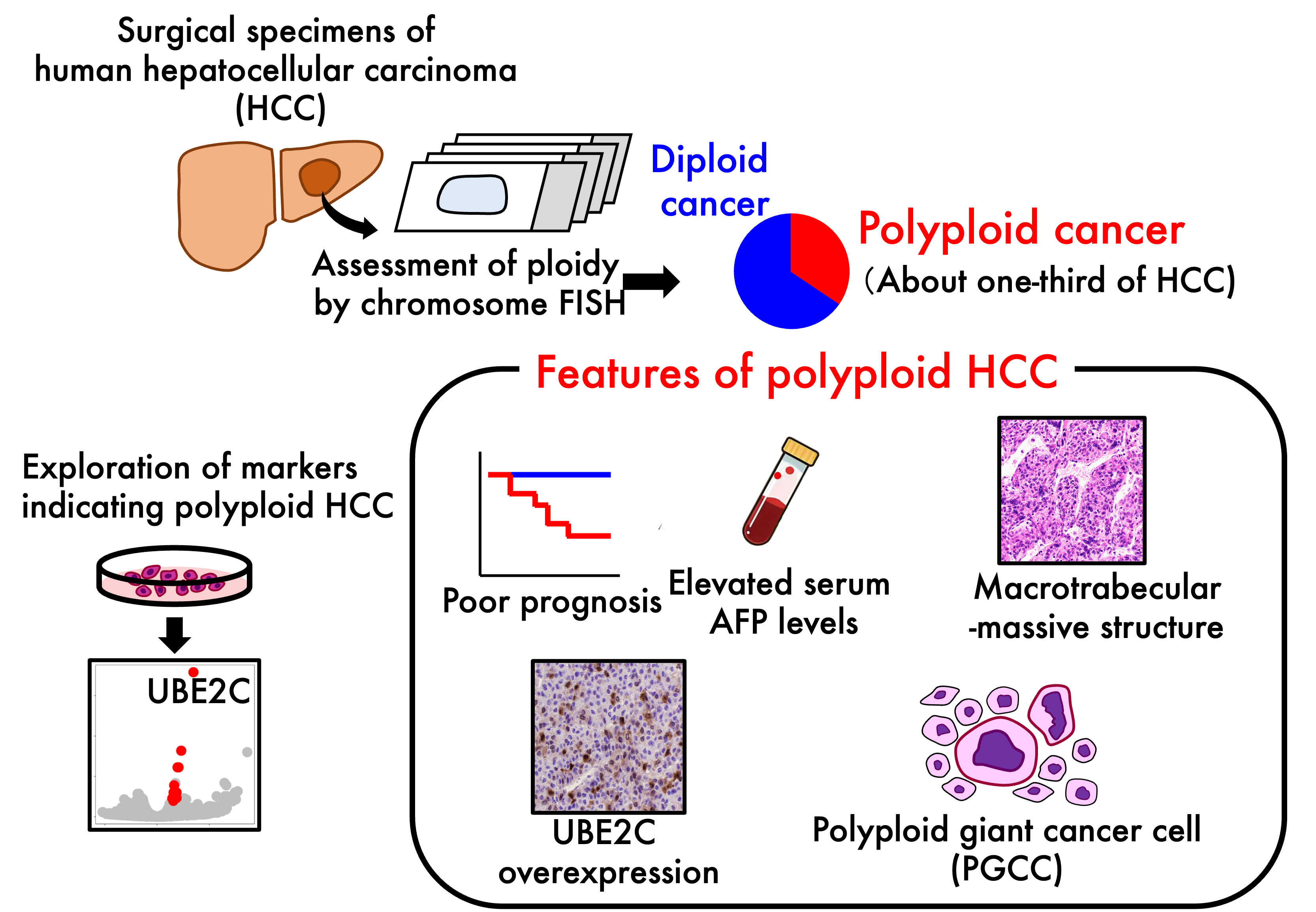The importance of polyploidy in predicting the prognosis of liver cancer (Hara Lab, in Br. J. Cancer)
Hepatocellular carcinoma (HCC) is the most common type of human liver cancer. Although genome duplication, or polyploidization, is believed to drive cancer evolution and affect tumor features, its significance in HCC has been largely unclear.
We here examined ploidy status of human HCCs using pathological sections of surgical specimens and explored the characteristics of polyploid HCCs. We revealed that about one-third of human HCCs are polyploid. Notably, polyploid HCCs exhibited elevated levels of tumor markers and had a poorer prognosis than diploid HCCs. Furthermore, polyploid HCCs frequently showed a distinctive histological pattern known as a macrotrabecular-massive pattern and contained abundant giant cancer cells called polyploid giant cancer cells (PGCC). We also explored markers indicating polyploid HCC by transcriptome analysis of cultured HCC cells and identified ubiquitin-conjugating enzymes 2C (UBE2C) as a gene highly expressed in polyploid HCCs. Importantly, the abundance of PGCCs and overexpression of UBE2C indicated polyploidy in HCC and efficiently predicted poor prognosis in combination.
Taken together, polyploidy discriminates an aggressive subset of HCC and is an important factor in predicting the prognosis of human HCC. Polyploidy might be a promising therapeutic target for an aggressive subset of HCCs.
This article was published in British Journal of Cancer, on September 15, 2023.
Title: “Histological diagnosis of polyploidy discriminates an aggressive subset of hepatocellular carcinomas with poor prognosis”
Authors: Takanori Matsuura, Yoshihide Ueda, Yoshiyuki Harada, Kazuki Hayashi, Kisara Horisaka, Yoshihiko Yano, Shinichi So, Masahiro Kido, Takumi Fukumoto, Yuzo Kodama, Eiji Hara, Tomonori Matsumoto* (*: Corresponding Auhtor)
Links
- Home
- Achievement
- Research Activities
- The importance of polyploidy in predicting the prognosis of liver cancer (Hara Lab, in Br. J. Cancer)








